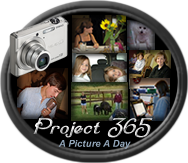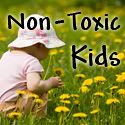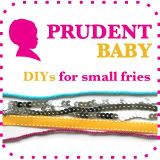Monday, November 24, 2008
13 Nagging Environmental Questions...
Paper or Plastic?
13 Nagging Environmental Questions …
Finally Answered!
By Diane MacEachern
www.theworldwomenwant.com
1.Should you choose paper or plastic at the grocery store? The best option is to use your own reusable bag. When you can’t, choose plastic – then reuse and recycle. Here’s why: According to a lifecycle analysis conducted by the Franklin Institute, plastic bags require less energy to produce and generate less solid waste than paper bags. They also create less air and water pollution than paper sacks. It takes 91 percent less energy to recycle a pound of plastic than it takes to recycle a pound of paper. The downside: plastic bags take hundreds of years to decompose. According to research conducted in 2000, only 1% of plastic bags were recycled compared to 20% of paper bags, even though most grocery stores now allow you to return plastic bags at convenient, in-store recycling bins. Let loose, plastic bags can injure and even kill wildlife, especially fish, turtles and other aquatic animals that mistake the bags for jelly fish or other food. Still, you’d need to use a paper bag 11 times to have a lower environmental impact than using 11 disposable plastic bags. Bottom Line: Use your own reusable bag when you can, don’t take a bag for single items, reuse bags as much as possible, and recycle when you’re done.
2.Use disposable or cloth diapers? It depends on where you live. According to the Institute for Lifecycle Analysis, disposable diapers produce substantially more solid waste. Cloth diapers produce half as much solid waste but use more water and produce more waterborne waste. If your community (like many of those in the West) is concerned about water shortages, it’s best to use disposable diapers. If your area faces landfill shortages (like some of those in the East), it’s best to use cloth.
Many parents wonder what health issues diapers raise. There is no clear-cut winner between disposables and cloth. Bleaching the paper for most disposable diapers creates dioxin, a toxin that can persist in the environment and cause cancer and other health problems. But according to the Pesticide Action Network, cotton is the most insecticide-intensive crop in the world. Thus, using cloth diapers made from conventionally grown cotton contributes to global pesticide use. Organic cotton diapers and alternatively bleached disposable diapers are available in the marketplace, but both are quite expensive. Because disposable diapers are superabsorbent, they keep babies drier longer. However, this phenomenon has a tendency to postpone babies’ tendency to potty train by around a year. You may change more diapers in the short term if your babies wear cloth diapers, but babies may transition out of diapers sooner, too. Some parents worry that the plastic and fragrances in disposable diapers could cause asthma or other illnesses in their children. To date, no diseases have been linked to the use of disposable diapers. You can wash cloth
diapers in fragrance-free detergents and softeners if that is a concern. Bottom Line: Choose cloth if you want to minimize the amount of trash you create and prefer to wrap your kids in cotton rather than plastic. Choose disposables if you want to save water.
NOTE: If you choose cloth, you may opt to launder the diapers at home, or use a service. When the study was originally done in 1992, commercial laundry services were found to be more water- and energy- efficient than washing diapers at home. Today’s new efficient appliances may make washing diapers at home just as energy- and water-saving.
3.Turn the lights off or leave them on? According to the Alliance to Save Energy, there’s no reason to leave lights on if a room is empty for more than one minute. This applies equally to the new energy-efficient fluorescent lights as well as to incandescents.
Bottom Line: Turn the lights off.
4.Turn the computer off or leave it on? For greatest energy savings, the U.S. Dept. of Energy recommends turning off the monitor if you aren't going to use your PC for at least 20 minutes. Turn off both the CPU and monitor if you're not going to use your PC for at least 2 hours. Plug all your office equipment into a power strip/surge protector that you can turn off completely at the end of the day or when your equipment won’t be used for long periods of time to avoid using "maintenance power" even when you’re not working. NOTE: you can plug televisions, DVD players, microwave ovens, and other electrical appliances into energy-saving power strips, too. Bottom Line: Turn the computer off.
5.Drink bottled water or tap? Tap water is actually better regulated for health and environmental safety than bottled water; it’s a lot cheaper, too. Plus, when you drink tap water you don’t have to contend with all those inconvenient throwaway plastic bottles. Bottom Line: Drink tap water.
6.Buy shade grown, organic, fair-trade coffee or conventional coffee? All coffee is grown in the rich equatorial belt that circles the world. Growing coffee in the shade is the natural way to raise this crop. It’s also the best way to protect coffee’s natural environment. Shade-grown coffee requires fewer pesticides and less fertilizer than coffee grown in the sun while providing habitat for birds and insects that devour the pests that prey on coffee plants. According to the Worldwatch Institute, plantations that grow "sun" coffee destroy rainforests to clear enough land for their crop. As a result, half as many bird species, and only one-third as many individual birds live on plantations that grow coffee in full sun. Diversity of insects, plants, and other wild creatures is lower as well. In addition to growing their coffee in the shade, farmers can grow it organically, which helps keep groundwater safe. And growing coffee using "fair trade" principles ensures that farmers are paid a living wage for their crop. You can buy coffee that is "triple certified" to be organic, fair trade, and shade-grown from companies like Thanksgiving Coffee Company, Equal Exchange, and Grounds for Change. Bottom Line: Buy shade-grown coffee. If possible, get coffee that is also organic and "fair-trade" grown.
7.Use paper towels or the electric hand dryer? According to the Smithsonian, there’s no contest. Electric dryers are twice as energy-efficient as paper towels, even if the towels are made from recycled paper. Although the production of the electricity that powers electric dryers generates greenhouse gases, the production of paper towels is twice as energy-intensive and creates more greenhouse gases overall. Also, the manufacture of paper towels emits pollutants, including chlorine, and many paper towels are made from virgin wood rather than recycled material. Your small choice can make a big difference. Bottom Line: Use the electric hand dryer.
2
8.Rinse fruit and vegetables in water or a commercially available "fruit wash" to remove pesticide residues? Rinse with water. Dr. Walter J. Krol in the Department of Analytical Chemistry at the Connecticut Agricultural Experiment Station studied the effectiveness of four commercially available fruit and vegetable wash products at removing nine different pesticide residues from produce compared to a 1% solution of Palmolive® or to rinsing with tap water alone. There was little or no difference between tap water or a fruit and vegetable wash in reducing residues of the nine pesticides studied. Of greater importance is to rinse all fresh produce under tap water for at least thirty seconds, and to rub the produce while rinsing to slough off as much pesticide residue as possible. NOTE: Pesticides can’t be thoroughly washed off produce that has been waxed. Non-organic fruits and vegetables that are commonly waxed include cucumbers, bell peppers, eggplant, potatoes, apples, lemons, limes, and oranges. To avoid pesticide residue on those foods, either buy organic or peel them before eating them. Bottom Line: Rinse with water, and rub produce while rinsing.
9.Wash the car at home or go to the car wash? Go to a car wash that recycles the wash water. Cars that are washed in the street or driveway can pollute our rivers and lakes, since the water that runs off the car into the gutter is not treated before it enters our waterways. In addition to soap, this water could contain mud, rubber, grease, and other automotive pollutants. Ideally, commercial car washes treat waste water before disposing of it in the sewer. They also recycle the water they use, saving hundreds of gallons per wash. If you want to wash your car at home, skip the soap, fill up a bucket with water a few times and use a sponge to clean off the car. Otherwise, Bottom Line: Go to the car wash.
10.Use paper towels or cloth? Cloth. According to an analysis done by reporters at the Miami Herald newspaper and Natural Resources Defense Council, you’ll save at least $77 a year on paper products, reduce the amount of trash you generate, and help save trees and forests. Why? Most manufacturers of paper towels and napkins use little or no recycled material when they make their products. Even if they did, most households cannot recycled used paper towels and napkins; this stuff just ends up in the trash. Reusable cloth napkins and towels will last at least a year. Keep a sponge handy for soaking up spills. Bottom Line: Use cloth towels and napkins.
11.Roll down the car windows, or use the air conditioning? At the slow speeds you drive in the city, it’s more energy efficient to keep the windows down and the air conditioning off. On the faster-paced highway, according to Beat High Gas Prices Now! The Fastest, Easiest Ways to Save $20-$50 Every Month on Gasoline, you’ll improve efficiency and reduce drag on your vehicle if you keep the windows up and flip on the A.C.
12.Buy locally grown fruits and vegetables, or organic? Local growers strengthen your own local economy and probably use less energy transporting their produce from the farm gate to your kitchen plate. But many local farmers apply pesticides and herbicides at some point during the growing season. Organic produce may be available in the supermarket – but it might come from New Zealand, Latin America, or even the other side of the country to get to where you live, racking up huge energy costs and losing a lot of flavor in the process. Personally, I try to have it all. Whenever possible, I buy locally grown, organic fruits and vegetables. If I shop in season, I’m more likely to meet my food shopping goals. If I have to, I put my health first. Fruits and vegetables that can’t be washed clean (like raspberries or cherries), I buy organic, even if they come from afar. Ultimately, I hope my choice will encourage local growers to adopt more organic growing methods. To keep track of what’s best to buy organically, and what’s ok to buy locally, I rely on the Environmental Working Group’s wallet-sized guide, available here.
13.Recycle, or buy less stuff? Buy less stuff – then recycle what you do buy. Consumption is driving many environmental woes. Energy used in manufacturing fuels global warming and contributes to air pollution. Clearing land to build shopping malls and factories destroys habitat for animals and plants, and minimizes open space for parks and recreation. Reducing consumption keeps resources intact and minimizes energy use. Besides, just because something can be recycled doesn’t mean it is. Here’s just one example, from the
3
National Container Recycling Institute. The beverage and aluminum industries tout the aluminum can as "the most recyclable" package in America, But recyclable doesn’t necessarily mean recycled. More than half of the 100 billion cans sold in the U.S. in 2005 were landfilled or incinerated. Bottom Line: Buy less stuff.
COPYRIGHTED MATERIAL. REPRINT ONLY WITH PERMISSION FROM DIANE MACEACHERN, WWW.THEWORLDWOMENWANT.COM
Contact: info@theworldwomenwant.com
4
13 Nagging Environmental Questions …
Finally Answered!
By Diane MacEachern
www.theworldwomenwant.com
1.Should you choose paper or plastic at the grocery store? The best option is to use your own reusable bag. When you can’t, choose plastic – then reuse and recycle. Here’s why: According to a lifecycle analysis conducted by the Franklin Institute, plastic bags require less energy to produce and generate less solid waste than paper bags. They also create less air and water pollution than paper sacks. It takes 91 percent less energy to recycle a pound of plastic than it takes to recycle a pound of paper. The downside: plastic bags take hundreds of years to decompose. According to research conducted in 2000, only 1% of plastic bags were recycled compared to 20% of paper bags, even though most grocery stores now allow you to return plastic bags at convenient, in-store recycling bins. Let loose, plastic bags can injure and even kill wildlife, especially fish, turtles and other aquatic animals that mistake the bags for jelly fish or other food. Still, you’d need to use a paper bag 11 times to have a lower environmental impact than using 11 disposable plastic bags. Bottom Line: Use your own reusable bag when you can, don’t take a bag for single items, reuse bags as much as possible, and recycle when you’re done.
2.Use disposable or cloth diapers? It depends on where you live. According to the Institute for Lifecycle Analysis, disposable diapers produce substantially more solid waste. Cloth diapers produce half as much solid waste but use more water and produce more waterborne waste. If your community (like many of those in the West) is concerned about water shortages, it’s best to use disposable diapers. If your area faces landfill shortages (like some of those in the East), it’s best to use cloth.
Many parents wonder what health issues diapers raise. There is no clear-cut winner between disposables and cloth. Bleaching the paper for most disposable diapers creates dioxin, a toxin that can persist in the environment and cause cancer and other health problems. But according to the Pesticide Action Network, cotton is the most insecticide-intensive crop in the world. Thus, using cloth diapers made from conventionally grown cotton contributes to global pesticide use. Organic cotton diapers and alternatively bleached disposable diapers are available in the marketplace, but both are quite expensive. Because disposable diapers are superabsorbent, they keep babies drier longer. However, this phenomenon has a tendency to postpone babies’ tendency to potty train by around a year. You may change more diapers in the short term if your babies wear cloth diapers, but babies may transition out of diapers sooner, too. Some parents worry that the plastic and fragrances in disposable diapers could cause asthma or other illnesses in their children. To date, no diseases have been linked to the use of disposable diapers. You can wash cloth
diapers in fragrance-free detergents and softeners if that is a concern. Bottom Line: Choose cloth if you want to minimize the amount of trash you create and prefer to wrap your kids in cotton rather than plastic. Choose disposables if you want to save water.
NOTE: If you choose cloth, you may opt to launder the diapers at home, or use a service. When the study was originally done in 1992, commercial laundry services were found to be more water- and energy- efficient than washing diapers at home. Today’s new efficient appliances may make washing diapers at home just as energy- and water-saving.
3.Turn the lights off or leave them on? According to the Alliance to Save Energy, there’s no reason to leave lights on if a room is empty for more than one minute. This applies equally to the new energy-efficient fluorescent lights as well as to incandescents.
Bottom Line: Turn the lights off.
4.Turn the computer off or leave it on? For greatest energy savings, the U.S. Dept. of Energy recommends turning off the monitor if you aren't going to use your PC for at least 20 minutes. Turn off both the CPU and monitor if you're not going to use your PC for at least 2 hours. Plug all your office equipment into a power strip/surge protector that you can turn off completely at the end of the day or when your equipment won’t be used for long periods of time to avoid using "maintenance power" even when you’re not working. NOTE: you can plug televisions, DVD players, microwave ovens, and other electrical appliances into energy-saving power strips, too. Bottom Line: Turn the computer off.
5.Drink bottled water or tap? Tap water is actually better regulated for health and environmental safety than bottled water; it’s a lot cheaper, too. Plus, when you drink tap water you don’t have to contend with all those inconvenient throwaway plastic bottles. Bottom Line: Drink tap water.
6.Buy shade grown, organic, fair-trade coffee or conventional coffee? All coffee is grown in the rich equatorial belt that circles the world. Growing coffee in the shade is the natural way to raise this crop. It’s also the best way to protect coffee’s natural environment. Shade-grown coffee requires fewer pesticides and less fertilizer than coffee grown in the sun while providing habitat for birds and insects that devour the pests that prey on coffee plants. According to the Worldwatch Institute, plantations that grow "sun" coffee destroy rainforests to clear enough land for their crop. As a result, half as many bird species, and only one-third as many individual birds live on plantations that grow coffee in full sun. Diversity of insects, plants, and other wild creatures is lower as well. In addition to growing their coffee in the shade, farmers can grow it organically, which helps keep groundwater safe. And growing coffee using "fair trade" principles ensures that farmers are paid a living wage for their crop. You can buy coffee that is "triple certified" to be organic, fair trade, and shade-grown from companies like Thanksgiving Coffee Company, Equal Exchange, and Grounds for Change. Bottom Line: Buy shade-grown coffee. If possible, get coffee that is also organic and "fair-trade" grown.
7.Use paper towels or the electric hand dryer? According to the Smithsonian, there’s no contest. Electric dryers are twice as energy-efficient as paper towels, even if the towels are made from recycled paper. Although the production of the electricity that powers electric dryers generates greenhouse gases, the production of paper towels is twice as energy-intensive and creates more greenhouse gases overall. Also, the manufacture of paper towels emits pollutants, including chlorine, and many paper towels are made from virgin wood rather than recycled material. Your small choice can make a big difference. Bottom Line: Use the electric hand dryer.
2
8.Rinse fruit and vegetables in water or a commercially available "fruit wash" to remove pesticide residues? Rinse with water. Dr. Walter J. Krol in the Department of Analytical Chemistry at the Connecticut Agricultural Experiment Station studied the effectiveness of four commercially available fruit and vegetable wash products at removing nine different pesticide residues from produce compared to a 1% solution of Palmolive® or to rinsing with tap water alone. There was little or no difference between tap water or a fruit and vegetable wash in reducing residues of the nine pesticides studied. Of greater importance is to rinse all fresh produce under tap water for at least thirty seconds, and to rub the produce while rinsing to slough off as much pesticide residue as possible. NOTE: Pesticides can’t be thoroughly washed off produce that has been waxed. Non-organic fruits and vegetables that are commonly waxed include cucumbers, bell peppers, eggplant, potatoes, apples, lemons, limes, and oranges. To avoid pesticide residue on those foods, either buy organic or peel them before eating them. Bottom Line: Rinse with water, and rub produce while rinsing.
9.Wash the car at home or go to the car wash? Go to a car wash that recycles the wash water. Cars that are washed in the street or driveway can pollute our rivers and lakes, since the water that runs off the car into the gutter is not treated before it enters our waterways. In addition to soap, this water could contain mud, rubber, grease, and other automotive pollutants. Ideally, commercial car washes treat waste water before disposing of it in the sewer. They also recycle the water they use, saving hundreds of gallons per wash. If you want to wash your car at home, skip the soap, fill up a bucket with water a few times and use a sponge to clean off the car. Otherwise, Bottom Line: Go to the car wash.
10.Use paper towels or cloth? Cloth. According to an analysis done by reporters at the Miami Herald newspaper and Natural Resources Defense Council, you’ll save at least $77 a year on paper products, reduce the amount of trash you generate, and help save trees and forests. Why? Most manufacturers of paper towels and napkins use little or no recycled material when they make their products. Even if they did, most households cannot recycled used paper towels and napkins; this stuff just ends up in the trash. Reusable cloth napkins and towels will last at least a year. Keep a sponge handy for soaking up spills. Bottom Line: Use cloth towels and napkins.
11.Roll down the car windows, or use the air conditioning? At the slow speeds you drive in the city, it’s more energy efficient to keep the windows down and the air conditioning off. On the faster-paced highway, according to Beat High Gas Prices Now! The Fastest, Easiest Ways to Save $20-$50 Every Month on Gasoline, you’ll improve efficiency and reduce drag on your vehicle if you keep the windows up and flip on the A.C.
12.Buy locally grown fruits and vegetables, or organic? Local growers strengthen your own local economy and probably use less energy transporting their produce from the farm gate to your kitchen plate. But many local farmers apply pesticides and herbicides at some point during the growing season. Organic produce may be available in the supermarket – but it might come from New Zealand, Latin America, or even the other side of the country to get to where you live, racking up huge energy costs and losing a lot of flavor in the process. Personally, I try to have it all. Whenever possible, I buy locally grown, organic fruits and vegetables. If I shop in season, I’m more likely to meet my food shopping goals. If I have to, I put my health first. Fruits and vegetables that can’t be washed clean (like raspberries or cherries), I buy organic, even if they come from afar. Ultimately, I hope my choice will encourage local growers to adopt more organic growing methods. To keep track of what’s best to buy organically, and what’s ok to buy locally, I rely on the Environmental Working Group’s wallet-sized guide, available here.
13.Recycle, or buy less stuff? Buy less stuff – then recycle what you do buy. Consumption is driving many environmental woes. Energy used in manufacturing fuels global warming and contributes to air pollution. Clearing land to build shopping malls and factories destroys habitat for animals and plants, and minimizes open space for parks and recreation. Reducing consumption keeps resources intact and minimizes energy use. Besides, just because something can be recycled doesn’t mean it is. Here’s just one example, from the
3
National Container Recycling Institute. The beverage and aluminum industries tout the aluminum can as "the most recyclable" package in America, But recyclable doesn’t necessarily mean recycled. More than half of the 100 billion cans sold in the U.S. in 2005 were landfilled or incinerated. Bottom Line: Buy less stuff.
COPYRIGHTED MATERIAL. REPRINT ONLY WITH PERMISSION FROM DIANE MACEACHERN, WWW.THEWORLDWOMENWANT.COM
Contact: info@theworldwomenwant.com
4
Subscribe to:
Post Comments (Atom)













No comments:
Post a Comment
Couldn't you just eat this one up? Did it not wet your appetite? What are you craving next? Let me know!